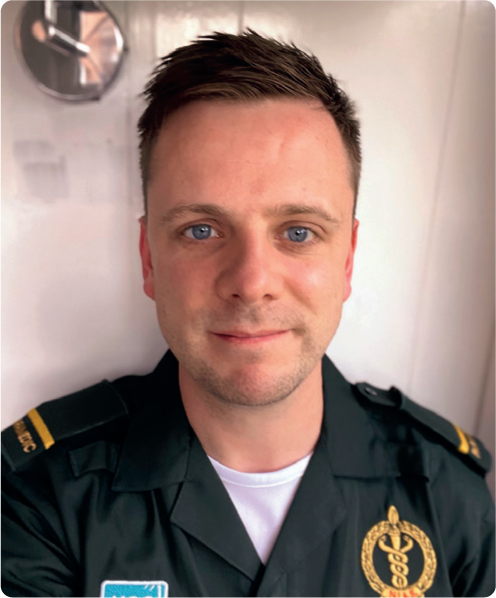
Many will remember a point in time when COVID-19 crept into their lives, turning many concepts we took for granted on their heads. For me, 14 March 2020 was the date that signified this change. I didn't know it at the time, but after two and a half years, this would be my last day on an ambulance as a student paramedic; my last day with a clinical mentor peering over my shoulder, the last time I would see all of my classmates together, and the start of a ‘new normal’ that a year and a half on, still feels like a dystopian future from a Stephen King novel.
At the time of writing, I am exactly one year into my career as a paramedic and what have I learned? As a student, it was easy to equate learning and progression with each passing year of university—the exams, the assignments, the placements. At the start of my first year, I remember looking on in awe at the ‘swagger’ of the newly anointed second-year students as they came back from their ambulance placements, carrying themselves like they had just completed two tours of duty, they had finally earned their stripes on ‘the road’—they had seen stuff!
For a newly qualified paramedic (NQP) who ‘cut his teeth’ in the midst of a global pandemic, the transition point of ‘progress’ is not so clear. The demand and pressure on the NHS has been relentless, frontline staff are beyond broken, and some of my NQP colleagues are now considering leaving the ambulance service and the paramedic profession entirely. Shift over-runs and long waits outside hospital with sick patients have become a daily occurrence, and as every passing shift blends into one, how do we find the time for any form of meaningful reflection and continuing professional development (CPD) when we are all so exhausted? When all we can seem to do is keep our heads above water, how do we rediscover that transition point of progress?
In my first week on the road as an NQP, my crew mate informed me that she was leaving the service after 6 years as a frontline paramedic, she was heartbroken. At her core, she still loved the job, providing the best care she could to her patients, but the conditions in which she worked made it impossible for her to continue, and her parting words of advice have stayed with me ever since—’look after yourself’. It has taken me almost 12 months and two ambulance services later, but I have come to appreciate what she meant by this, and the importance of finding a balance. In doing so, I have discovered that I am more proactive and productive in my ‘down-time’, and my love for all things paramedic is slowly continuing to grow. Talking, and sharing how I am feeling, with my crew mates—my green family—has helped, and at a time when it is easy to feel so cut off, and so alone, we are (and always have been) in this together. For me, knowing we have got each other's backs in the face of this pandemic has meant everything.
Learning drug names for handover however is another matter entirely; I will eventually get to it but there a lot of them! So for now, and for self-preservation, I will just have to settle with confusing the nurse and accidentally summoning the souls of demons with my attempts to pronounce ‘cloppy-dog-rill’.

